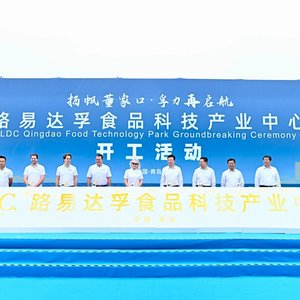Southern Bluefin Tuna born in world-first artificial breeding regime
Australian aquaculture pioneer Clean Seas Tuna Limited has reported the hatching of live and active Southern Bluefin Tuna larvae this morning at its multi-million SBT land-based breeding facility at
The hatching follows the c
“This morning at 10.10 a.m. CST, reports were received fr
The breeding breakthrough should give
“This world breakthrough is what we have been working towards for the past three years and realizes a dream we have had for more than a decade,” Stehr said.
“This is the next step in delivering our stated goal of growing out SBT fingerlings produced fr
Stehr said that fr
The program had extraordinary benefits for Clean Seas and its shareholders, Stehr explained, in that these fish would not be subject to the strict Australian SBT wild catch quotas and there are no trade barriers for their sale into the major markets of Japan, China, the US, and the European Union where natural fish stocks are severely depleted.
“Clean Seas will now have the ability to stimulate and then satisfy consumer demand for greater quantities of SBT, and we can potentially produce the fish year-round.
“We are optimistic that as a result, we will be able to emulate the success we have achieved with other aquaculture species such as Yellowtail Kingfish and Mulloway – and in so doing reward the faith of those who have invested in our dream and those who have worked so hard to turn it into reality.” Clean Seas already has 3,200 tonnes of Yellowtail Kingfish growing in pens in
“Technically, this breakthrough is testimony to the passion, expertise and c
Stehr said scientists fr
Clean Seas’
Stehr said the next step in the c
“Aquaculture will increasingly meet the world’s growing demand for preferred fish species via environmentally sustainable programs such as ours,” Stehr said.
“This has been our dream for more than a decade and I feel like a proud grandfather to these tiny Southern Bluefin Tuna - and a proud father to a new world of sustainable premium seafood production.”
Clean Seas Tuna Limited listed on the Australian Stock Exchange in December, 2005. Clean Seas’ major shareholder, the Stehr Group was established in the early 1970s and is now recognized as an Australian leader and international pioneer in tuna fishing and offshore fish farming. In November 2007, US-based international food giant Simplot – the c
In 2007-08,










